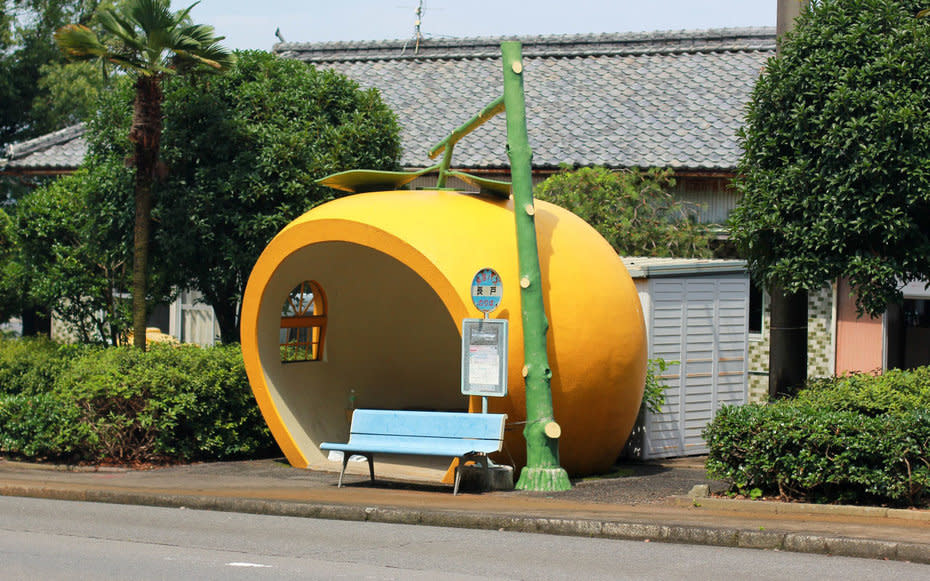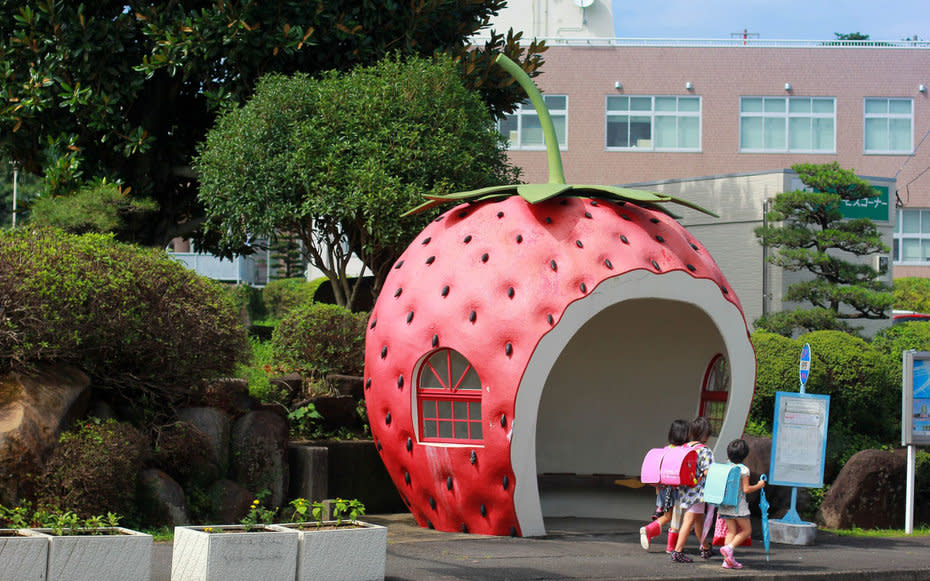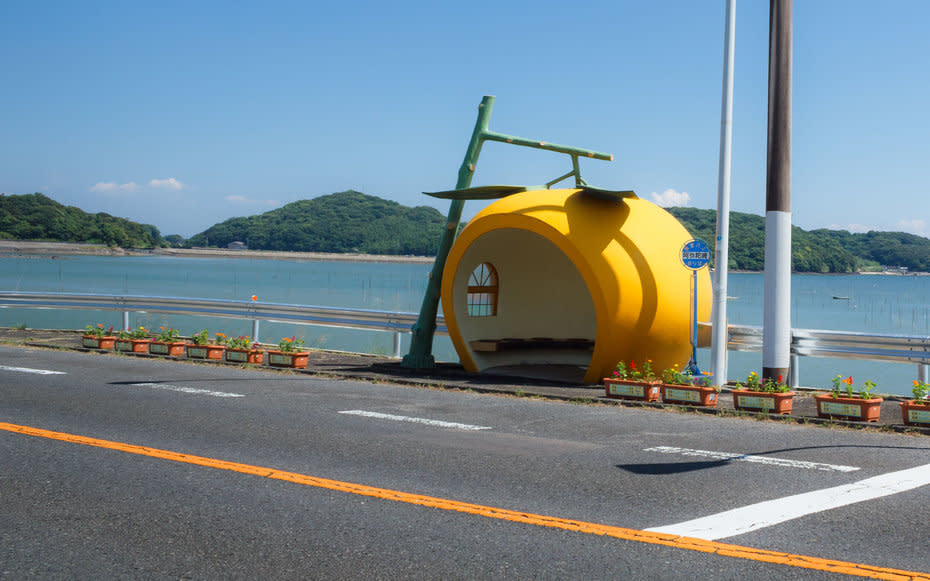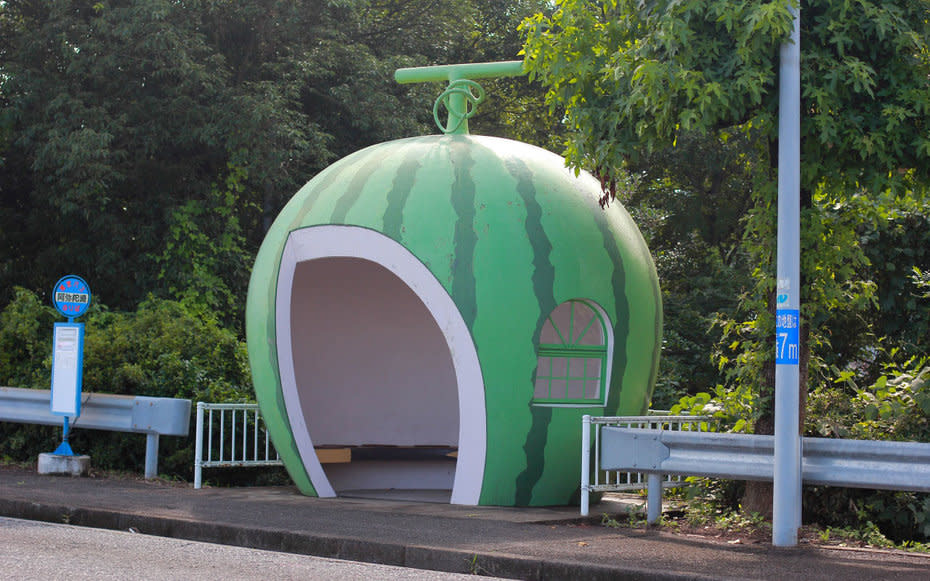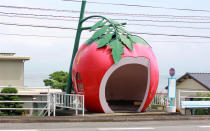In Photos: Japan's Whimsical, Fruity Bus Stops
As many cities and have started realizing, bus stops are ripe for an architectural revolution. A bus shelterhas few practical requirements other than a roof for protecting waiting riders, sowhy is it that for so long we've been stuck with gray and boring shelters? Why are we not, for example, turning our bus stops into oversized replicas of beloved foods?
In Konagai, Japan, bus shelterslook like giant pieces of fruit, and it's enough to make an easily delighted person book a trip.
Twenty-sixyears ago, the locals of Konagai (located in the Nagasaki prefecture) had a big idea:build cartoonish,fruit-shaped bus stops for their 1990 Travel Expo, which was meant to attract visitors to the area.
The project was successful. Even after nearly three decades, the 14 fruity shelters are attracting travelers, who are eager to take photos of the inhabitableoranges, strawberries, watermelons, and more.
Check out the photos, below.

 Yahoo Finance
Yahoo Finance 